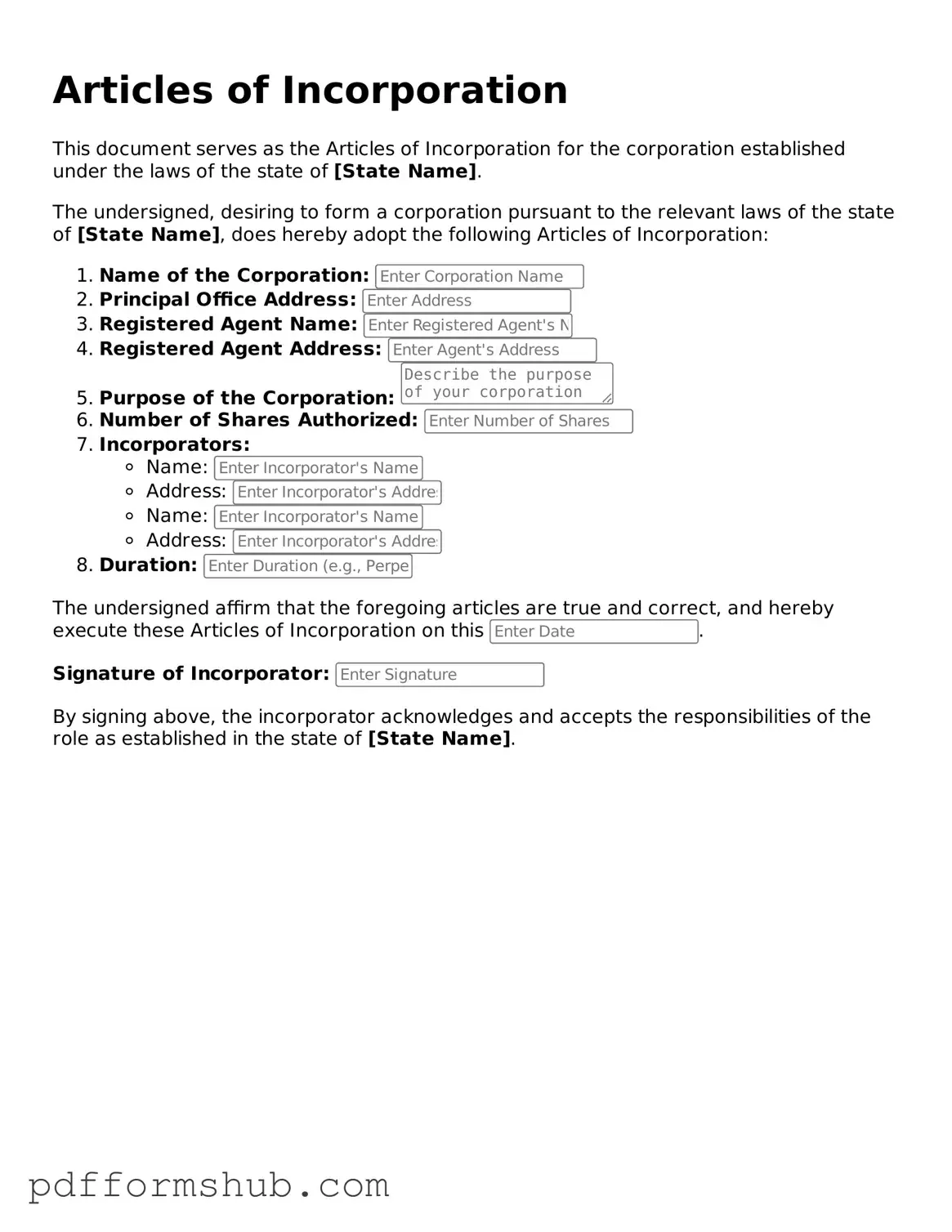Valid Articles of Incorporation Form
The Articles of Incorporation form is a crucial document that establishes a corporation's existence in the eyes of the state. It outlines key information about the business, including its name, purpose, and structure. Understanding how to properly fill out this form is essential for any entrepreneur looking to start a corporation.
Ready to get started? Fill out the form by clicking the button below.
Customize Form

Valid Articles of Incorporation Form
Customize Form

Customize Form
or
Free PDF Form
Short deadline? Complete this form now
Complete Articles of Incorporation online without printing hassles.